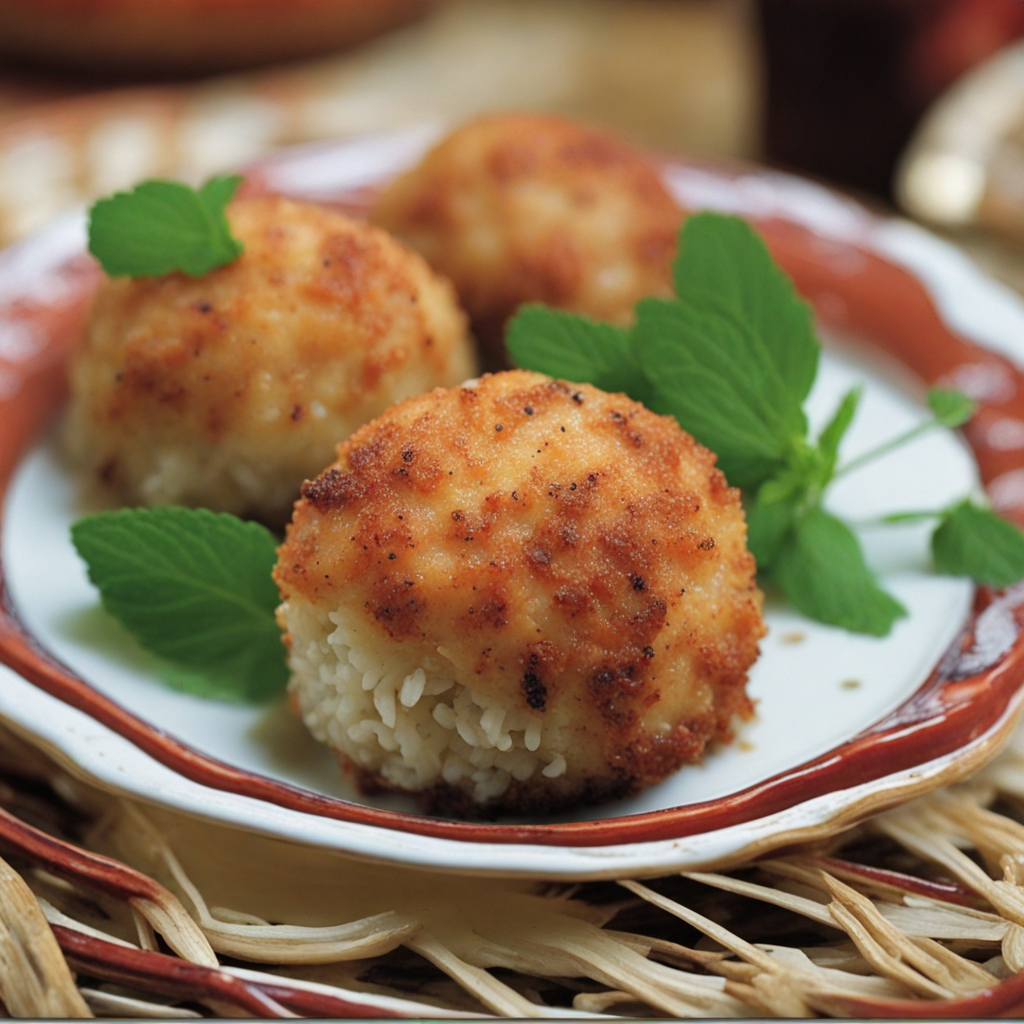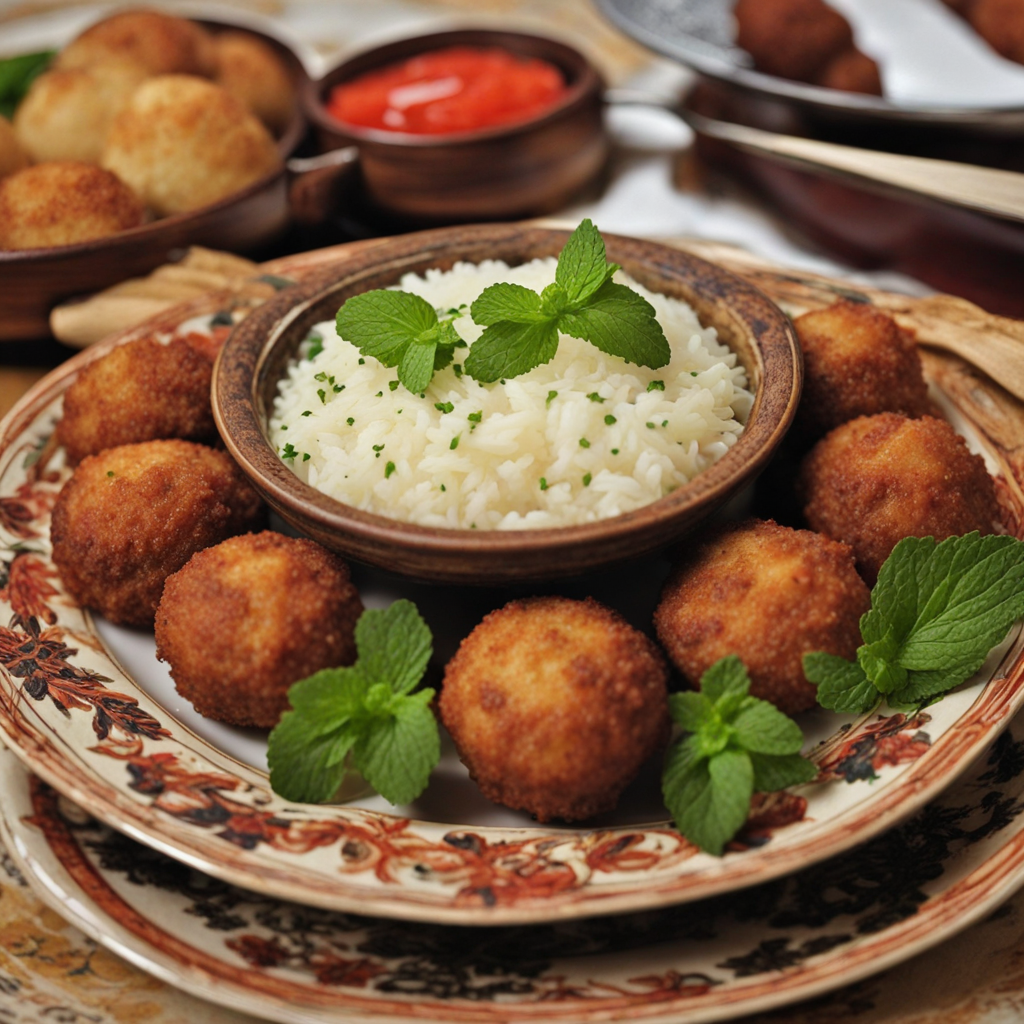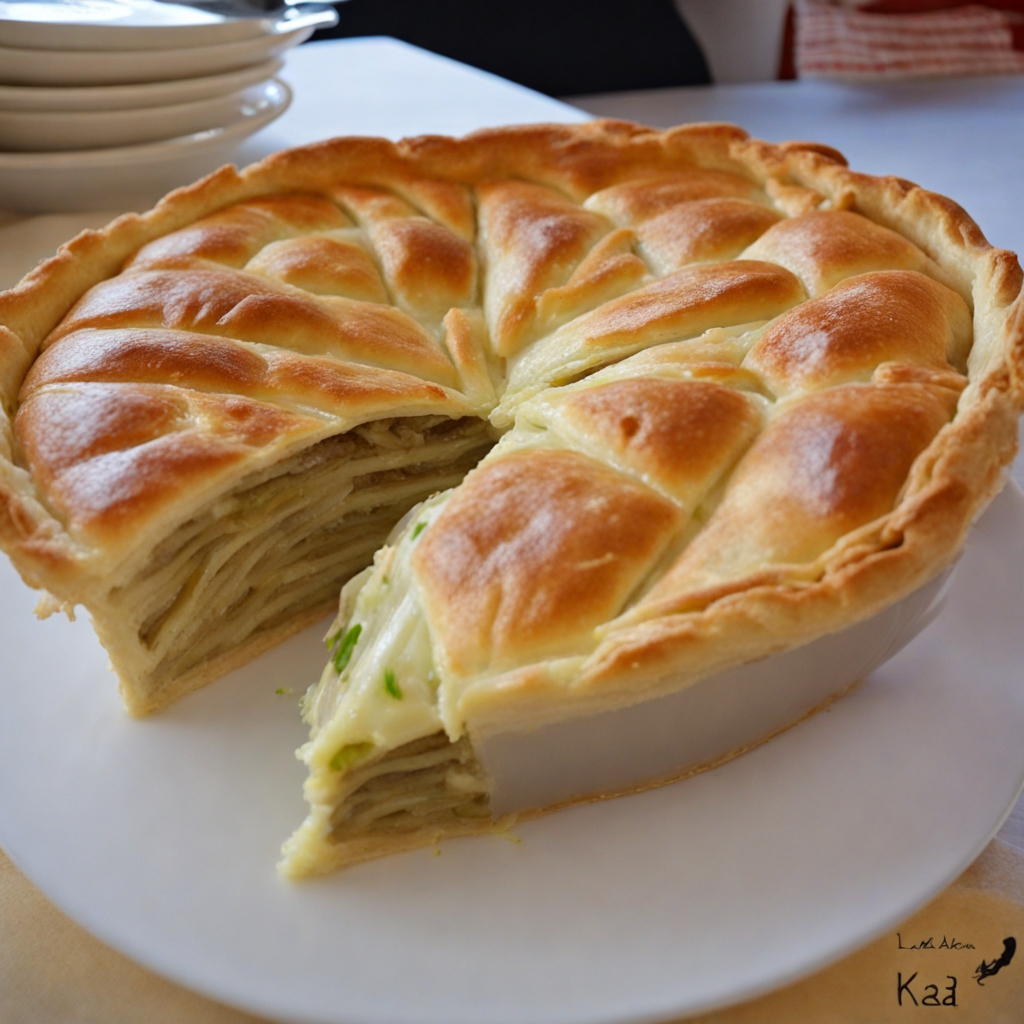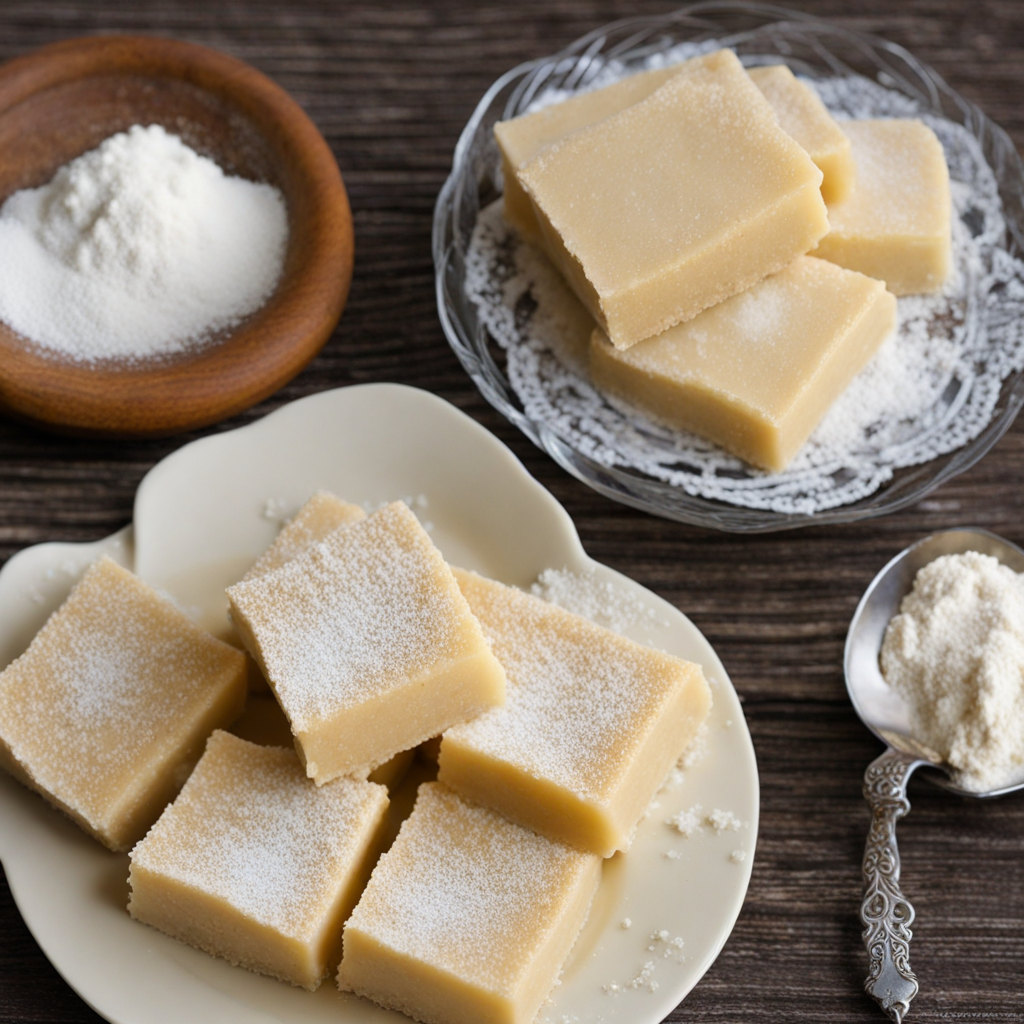Qifqi
Qifqi is a unique and flavorful dish hailing from Albania, particularly popular in the southern regions of the country. This traditional food is made from rice that is cooked with a generous blend of spices and herbs, giving it a distinctive taste that reflects the rich culinary heritage of the area. The rice is typically mixed with ingredients such as eggs, parsley, and various seasonings, which together create a delightful harmony of flavors. The dish is often formed into small patties or balls and then lightly fried, resulting in a crispy exterior that contrasts beautifully with the tender, aromatic rice inside. One of the standout features of Qifqi is its versatility. It can be enjoyed as a side dish or served as a main course, often accompanied by a refreshing salad or yogurt to balance out the flavors. The use of fresh herbs like parsley and dill not only enhances the taste but also adds a vibrant green color to the dish, making it visually appealing. This combination of textures and flavors makes Qifqi a delightful experience for anyone looking to explore the culinary wonders of Albania. For those eager to experience a taste of Albanian culture, Qifqi offers a unique opportunity to savor a dish that is both simple and indulgent. The cooking method is straightforward, yet the results are anything but ordinary. Each bite delivers a burst of flavor, making it a memorable addition to any dining table. Whether enjoyed at a local eatery in Albania or prepared at home, Qifqi promises to transport your taste buds to the heart of the Albanian countryside.
How It Became This Dish
The History of Qifqi: A Culinary Jewel of Albania Origins and Ingredients Qifqi, a traditional dish from the region of Albania, particularly associated with the city of Gjirokastër, embodies the rich tapestry of Albanian culinary heritage. Its origins can be traced back to the rural kitchens of southern Albania, where families relied on locally available ingredients and traditional cooking methods. The primary components of Qifqi include rice, eggs, and a medley of herbs, particularly dill and parsley, which are pivotal in giving this dish its distinctive flavor. The foundational element of Qifqi is rice, which has been cultivated in the Balkans since antiquity. Historical records indicate that rice was introduced to the region during the Ottoman Empire, where it became a staple in many local cuisines. Over time, the dish evolved, incorporating various herbs and spices that reflect the diverse agricultural bounty of the region. The use of fresh, local ingredients not only contributes to the dish's flavor but also symbolizes the Albanian ethos of sustainability and respect for nature. Cultural Significance Qifqi is more than just a meal; it is a symbol of Albanian culture and identity. Traditionally prepared during festive occasions and family gatherings, it serves as a bridge between generations, connecting the past with the present. The preparation of Qifqi is often a communal activity, with family members coming together to cook, share stories, and celebrate their heritage. In Albanian culture, food is a manifestation of hospitality, and offering Qifqi to guests is a gesture of warmth and welcome. The dish is typically served with yogurt or a side of fresh vegetables, enhancing its nutritional value and flavor. The ritual of preparing and sharing Qifqi fosters bonds within the community, making it an integral part of social gatherings and celebrations. Development Over Time Throughout its history, Qifqi has undergone several transformations, influenced by various socio-political changes and culinary trends. During the Ottoman period, the dish likely absorbed elements from Turkish cuisine, leading to a richer variety of flavors and cooking techniques. For instance, the addition of spices such as cumin and paprika, which are commonly found in Turkish dishes, may have been introduced during this time. In the 20th century, Albania experienced significant upheaval, particularly during the communist regime under Enver Hoxha, which drastically altered the country’s food landscape. The emphasis on self-sufficiency and local produce during this time meant that Qifqi remained a staple dish, albeit with variations depending on the availability of ingredients. The focus on communal farming and local markets ensured that traditional recipes were preserved, with families adapting the dish to reflect their local resources. Following the fall of communism in the early 1990s, Albania opened up to globalization, and with it, culinary influences from around the world began to permeate Albanian kitchens. While international cuisine made its mark, traditional dishes like Qifqi remained cherished staples, often prepared alongside more contemporary meals. This period saw a revival of interest in Albanian culinary traditions, with Qifqi being reimagined in various forms while still maintaining its essence. Modern Interpretations and Global Recognition In recent years, there has been a renewed interest in traditional Albanian dishes, spurred by a growing global fascination with authentic, regional cuisines. Chefs and food enthusiasts have begun to explore Qifqi, elevating this humble dish to gourmet status in some circles. Modern interpretations of Qifqi might include the incorporation of different proteins, such as chicken or lamb, and innovative cooking techniques, all while retaining the dish's fundamental characteristics. Restaurants in Albania and the diaspora have started showcasing Qifqi on their menus, presenting it as a quintessential part of Albanian identity. Food festivals and cultural events often feature Qifqi, where chefs compete to create the most authentic or inventive versions of the dish. This resurgence in popularity is not merely a culinary trend; it represents a broader movement to celebrate and preserve Albanian culture and heritage. Qifqi in the Diaspora The Albanian diaspora, particularly in countries like the United States, Canada, and the United Kingdom, has played a crucial role in promoting Qifqi beyond Albania's borders. Albanian communities abroad often host cultural events where traditional dishes are featured, allowing younger generations to connect with their roots. Qifqi, with its simple yet flavorful profile, has become a beloved dish among both Albanians and non-Albanians alike. Social media platforms have also contributed to the global appreciation of Qifqi. Food bloggers and influencers share recipes, cooking tutorials, and personal stories related to the dish, effectively creating a virtual community that celebrates Albanian cuisine. The visual appeal of Qifqi, often garnished with fresh herbs and served alongside colorful accompaniments, makes it an attractive subject for food photography, further enhancing its visibility and popularity. Conclusion As we reflect on the history of Qifqi, it becomes evident that this dish is a living testament to Albania’s rich culinary tradition. Rooted in local ingredients and communal practices, Qifqi serves as a reminder of the importance of family, hospitality, and cultural identity. Its evolution over time showcases the resilience of Albanian cuisine in the face of changing political and social landscapes. Today, Qifqi stands as a proud representation of Albania's culinary heritage, bridging the past with the present and inviting future generations to continue the tradition. Whether enjoyed at a family gathering or featured in a modern restaurant, Qifqi remains a beloved dish that encapsulates the essence of Albanian culture, inviting all who partake in it to share in its rich history and delightful flavors.
You may like
Discover local flavors from Albania







